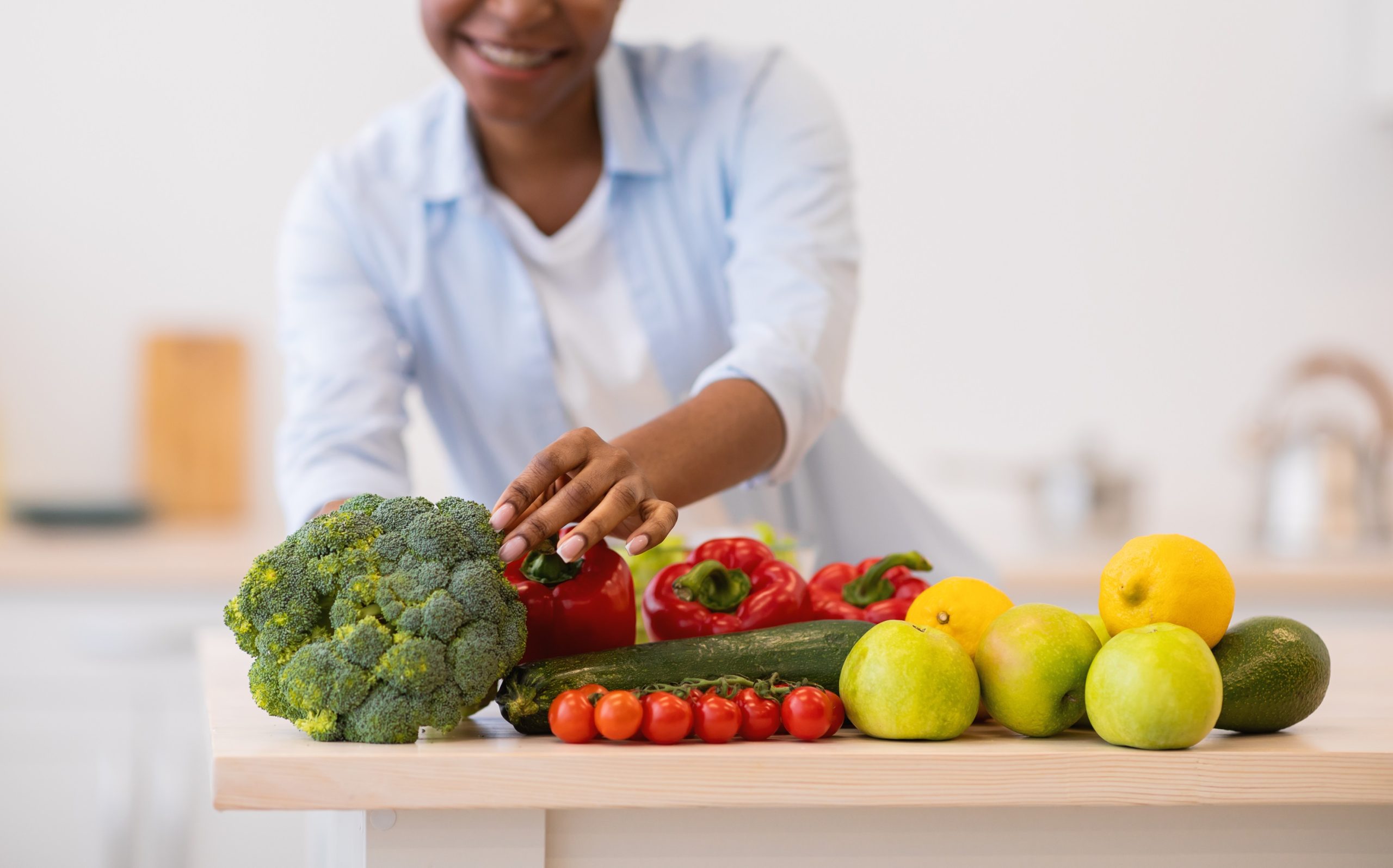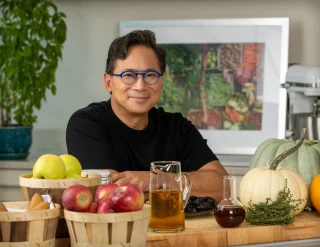The world is in the middle of a chronic disease epidemic where diet has proven to be a significant culprit. If poor food choices fuel the inflammation fire, then it would make sense for the better ones to prevent – or possibly extinguish – it altogether. This has prompted a “food as medicine” approach to thwart rampant health issues. Perhaps this means the only pharmacy visit we need is the one to the whole foods aisle.
On this week’s Wellness Wednesday, we interviewed Dr. William Li to discuss the pioneering method of using food as medicine while claiming our health back. He is a globally renowned physician, scientist, and New York Times bestselling author of the book “Eat to Beat Disease“.
Dr. Li enlightened us on the body’s ability to heal itself when nourished with certain health-boosting foods – with scientific evidence to back it. He studied the healing properties of foods using the same systems that test pharmaceutical drugs and found groundbreaking results.
Food as medicine can be equally potent as drugs
The proverb “prevention is better than cure” is at the forefront of Dr. Li’s work. He hopes to not only help people stay as healthy as possible, but also prevent them from slipping back into a situation where they are dependent on medications forever. Following his involvement in the successful development of 44 new treatments for chronic diseases (including cancer and diabetes), he wondered whether these ailments could be avoided from the outset.
“We are cleaning up the traffic accident on the highway as opposed to preventing the accident. It led me to ask [whether] we could do something better by preventing disease in the first place. What I realized is that if we’re going to talk about prevention, we can’t talk about drugs. We need to talk about something that is safe, accessible, and inexpensive that everyone can relate to. That’s how I came about [doing] research on food,” discussed Dr. Li.
He did an experiment by throwing food extracts into the testing system typically used to study medications to test their bioactivity. Consequently, the idea of food as medicine became more real; he discovered that 50% of these foods were either equal to or more powerful than the drugs being studied.
Eating better is not as expensive as you may think
According to research, a substandard diet exceeds tobacco as being a contributor to one in every five deaths across the globe. The obvious solution would be to swap out junk food in favor of healthier selections. However, most people would dispute that these better choices come with a heavier price tag and, hence, greater reluctance.
The perception of healthy food being more costly acts as an obstacle to eating better, but the price increase is not as extreme as one would expect. In fact, researchers from the Harvard School of Public Health found that an average person would only need to spend an extra $1.50 per day on healthier options. Moreover, Dr. Li argued that data shows how all people have inexpensive options available at their disposal, regardless of income, age, etc.
That cheap can of beans is your inflammation-fighting ally
Make canned beans a pantry staple to ward off disease without breaking the bank. Dr. Li listed beans as the perfect example of food as medicine that is widely available, inexpensive, and helps elevate our health defenses. They are as easy to cook as they are to buy while making us more resistant to cancer, heart disease, and diabetes.
Beans contain dietary fiber, which feeds the healthy bacteria in our gut. The gut microbiome acts as one of the body’s key defense systems, and it is activated by eating dietary fiber. It lowers inflammation and strengthens our immune system to fight external invaders (like bacteria and viruses) and invaders inside our body (like cancer). The impressive bioactivity of beans clearly illustrates how something so affordable can profoundly affect our health. Why incur outrageous healthcare costs in the future to treat avoidable illnesses when we can take cheap preventive measures now in the form of a can of beans?
Love your food to love your health
Dr. Li expressed that one must make their food choices intensely personal to reap the benefits of using food as medicine. The “one size fits all” is a problem – spread by modern healthy food movements – not catering to people’s individuality. There are general health principles that suit everyone, but our personal tastes and preferences should drive our decision-making. There tends to be a big focus on what we need to exclude from our diets, but concentrating on the nutritious food we already enjoy is where the real magic (and motivation) lies.
Dr. William Li, author of Eat to Beat Disease
“My philosophy is: love your food to love your health. What that means is that rather than fear your food, love it. Rather than think you must eliminate, restrict, or deprive, I want people to choose the foods that they already love that happen to be healthy,” explained Dr. Li.
It’s much easier to tailor a healthy diet or food pattern to who you are. Dr. Li believes that everyone should be free to choose foods that fit the criteria of being healthy, pleasurable to eat, accessible, and affordable. He encourages people to look at a list of all the foods proven to impact health positively but pay extra heed to the ones they inherently love. This can empower individuals to become more attuned to their bodies and understand how to eat better to take their health back into their hands.
Health is more than just the absence of disease
When it comes to surviving damage or injury, starfish and salamanders are not the only creatures with a regenerative trick up their sleeves. Studies have discovered that our nerves and liver can regenerate, which means that the regenerative capacity of humans extends beyond just our skin’s ability to repair itself from wounds. In fact, up to 90% of your liver can be removed, and it will be able to grow back completely.
The body’s regeneration defense system uses stem cells (special cells that can make different types of cells ranging from muscle to blood cells) to repair damaged tissues and organs. Dr. Li explained how this remarkable process of healing from the inside out emphasizes how health is not just the absence of disease. Health is the result of our body’s defense systems being stimulated. Therefore, it is our responsibility to protect these systems by using food as medicine to activate them and make us stronger.
The bottom line
Defending our bodies against avoidable illnesses is as simple as selecting food armor that is both nutritious and enjoyable. Dr. Li’s work positions a healthy diet at the helm of our well-being. However, it’s ultimately up to us to choose the right foods. The next time you assemble a plate of food, ask yourself whether the contents will set your body up for protection or destruction.
WATCH THE INTERVIEW
View this post on Instagram
Article Image Source: Dr. William Li






![women [longevity live]](https://longevitylive.com/wp-content/uploads/2020/01/photo-of-women-walking-down-the-street-1116984-100x100.jpg)









